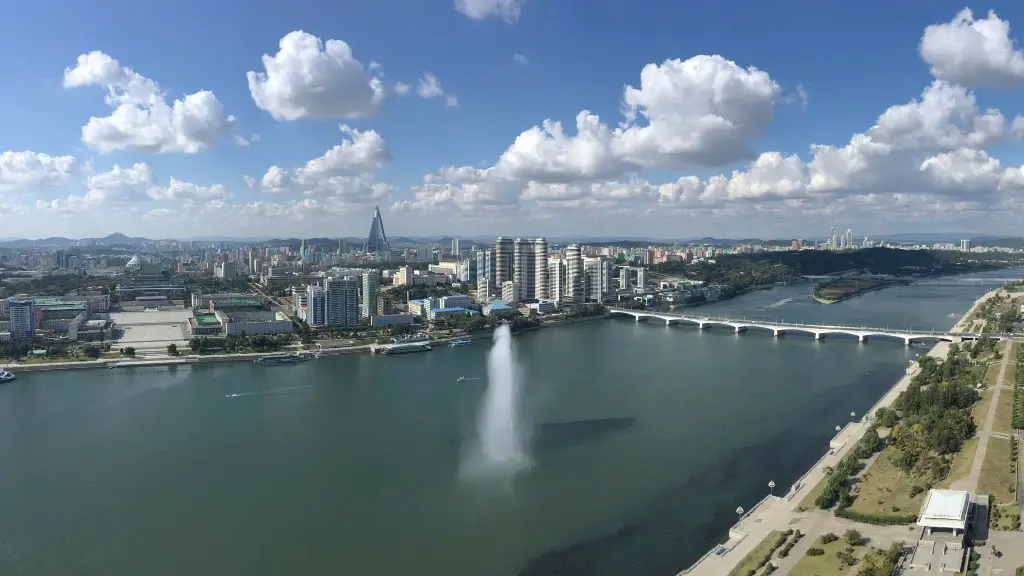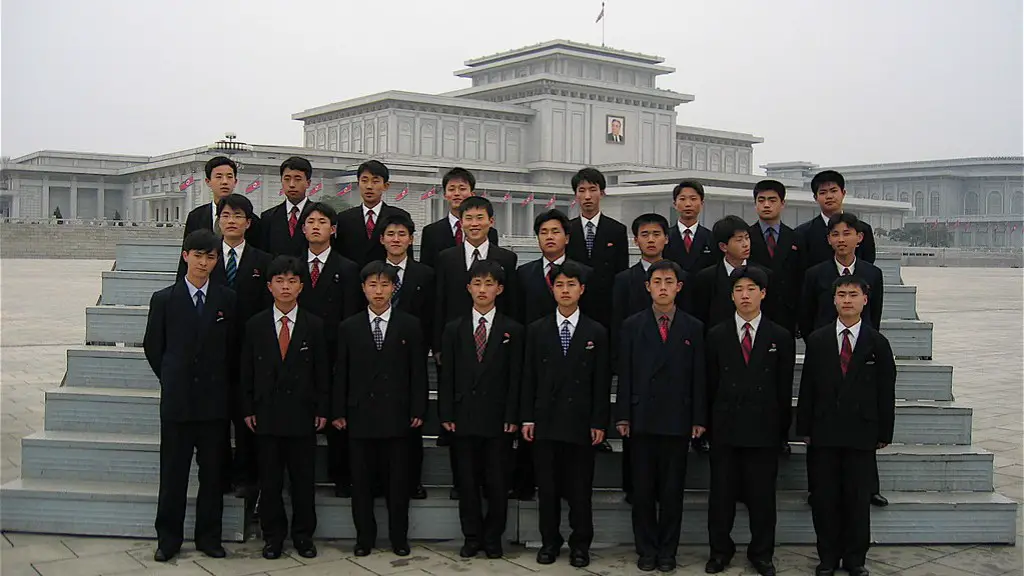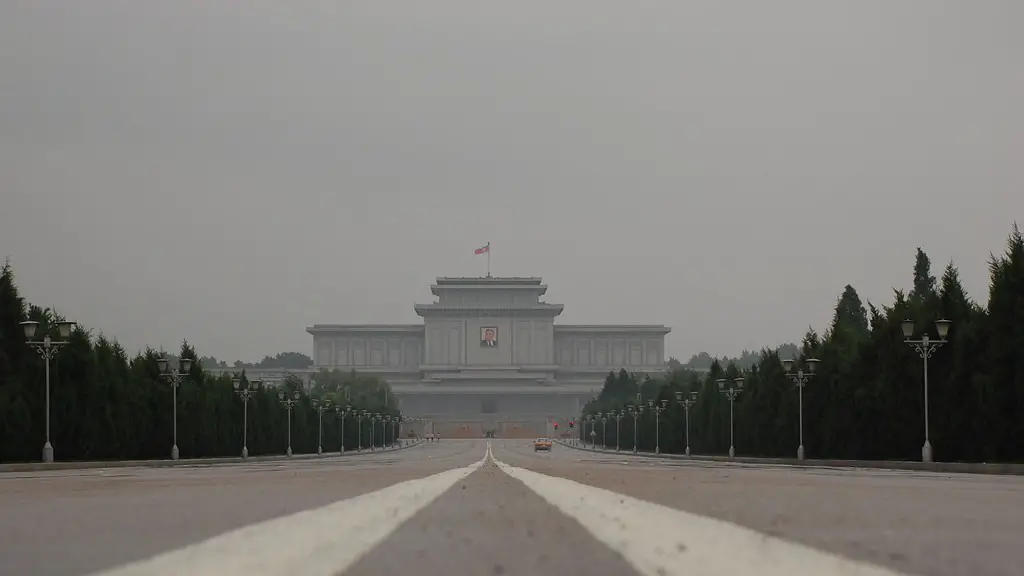North Korea’s Governmental Structure
North Korea is considered as a totalitarian state as its government exercises strict control over its citizens. Its government is led by the Supreme Leader, Kim Jong Un and several other powerful leaders. The state is made up of 9 provinces and 3 special economic regions. These regions feature a unique economic system where people can trade within the country but not beyond its borders. Moreover, North Korea has a centralized government that decides policy from the capital city of Pyongyang. Within Pyongyang lies the government’s legislative, judicial, and executive branches. This has effectively led to a lack of individual rights as well as an absence of a free-market system.
Effects of North Korea’s Oppressive Regime
Over the course of its rule, North Korea has subjected its people to numerous human rights violations. This has resulted in dire living conditions for most. According to the United Nations, North Korea continues to have widespread famine, malnutrition, and health problems. Additionally, North Korea is known for its harsh laws that severely punish any form of dissent. Political prisoners, including children and the elderly, are subject to inhumane treatment in labor camps. Tensions are high from North Korean’s threats of missile strikes and nuclear weapons.
Global Reactions to North Korea’s Actions
The international community has been largely criticized for its response to North Korea. The United Nations has had a policy of “strategic patience” for many years, moving forward with sanctions and negotiations but not taking any drastic action. The United States has imposed its own sanctions but these efforts have been largely unsuccessful in curbing the hostile behavior of North Korea. Other nations have also done their part, such as China, who is North Korea’s only ally, by limiting trade and setting up dialogue with North Korea. Unfortunately, these measures have proven futile as North Korea continues its nuclear ambitions.
Media Coverage of North Korea’s Regime
Media coverage of North Korea is dominated by inaccurate reporting, sensationalism, and hyperbole. News outlets often tend to overlook the standard of living of North Korea’s people and skews the narrative in favor of dramatizing North Korea’s actions and rhetoric. This has caused the public to become more fearful of the nuclear arms race and further fueled sensationalism. As a result, news outlets are more focused on how North Korea is perceived, instead of the facts behind the brutal regime.
What Can We Do To Help North Korea?
It is clear that North Korea is heavily entrenched in its oppressive regime and is unlikely to change anytime soon. However, there are certain steps that can be taken to help bring about change. The most important step is to spread awareness about North Korea. As media coverage is skewed towards the sensationalist side, one of the most effective measures is to educate people on the harsh realities of North Korea. Other steps that can be taken include supporting North Korean refugees, advocating for stronger sanctions, and speaking out against oppressive regimes.
Impact of US Policy on North Korea
The US’ policy of sanctions and dialogue have had minimal impact on North Korea’s behavior. This is largely due to the fact that North Korea is an isolated state. While the US can impose sanctions on North Korea, it is unlikely that these measures are effective without the support of the international community. Additionally, the US has largely failed to use diplomatic measures to persuade North Korea to change its policies. As a result, the US policy towards North Korea has had minimal impact on the country.
International Organizations and North Korea
Several international organizations, including the United Nations, have made efforts towards facilitating dialogue between North Korea and the international community. However, these attempts have largely failed with North Korea continuing to pursue its nuclear ambitions. This is largely due to North Korea’s refusal to open its borders or cooperate in any capacity. As a result, these international organizations have been unable to make any meaningful progress.
Role of China in North Korea’s Politics
China has been a key player in the politics of North Korea. Despite being heavily sanctioned by the US, China has continued to support North Korea both economically and politically. In recent years, China has opened up trade channels with North Korea, which has enabled North Korea to continue its oppressive rule. China has also aided North Korea in certain nuclear development as a counterbalance to the US’ presence in the region. As a result, China has a significant role in North Korea’s politics.
Levels of Sanctions Implemented on North Korea
Several countries have implemented sanctions on North Korea in an attempt to bring about change. The US and the United Nations have placed several economic embargoes on North Korea, including the closure of ports and travel bans. These sanctions have targeted North Korea’s exports, investments, and finances, resulting in a major decrease in North Korea’s GDP. Unfortunately, these sanctions have not made any significant impact on North Korea and the country continues to pursue its nuclear ambitions.
North Korea and the Nuclear Arms Race
The nuclear arms race has been a major source of tension between North Korea and the international community. North Korea has continued to pursue nuclear ambitions, despite warnings from the United States and other countries. North Korea has conducted several nuclear tests and even launched multiple ballistic missiles. This has led to disruption of international peace and has caused the international community to come together to find a solution. Although negotiations and sanctions have been attempted, there has yet to be a successful resolution.
North Korea and Human Rights Violations
North Korea has long been accused of numerous human rights violations. The government has been known to subject its citizens to torture and inhumane punishments. Political dissidents have reportedly been executed or sent to prison camps, while those in prison camps are subjected to grueling tasks, torture, and starvation. Additionally, North Korea has been known to interfere in its citizens’ freedom of thought and expression. These human rights abuses have been widely criticized by the international community, yet North Korea has continued its oppressive rule.
Connection Between North Korea and Terrorism
There have been several allegations that North Korea had connections to international terrorism. Intelligence agencies have reported that North Korea has had ties with several terrorist groups, including ISIS and Al-Qaeda. While North Korea has denied having links to these groups, some experts have suggested that the country has had a hand in providing funding and resources to these organizations. Additionally, North Korea has been linked to cyber-terrorism and attacks, posing a significant threat to the international community.



